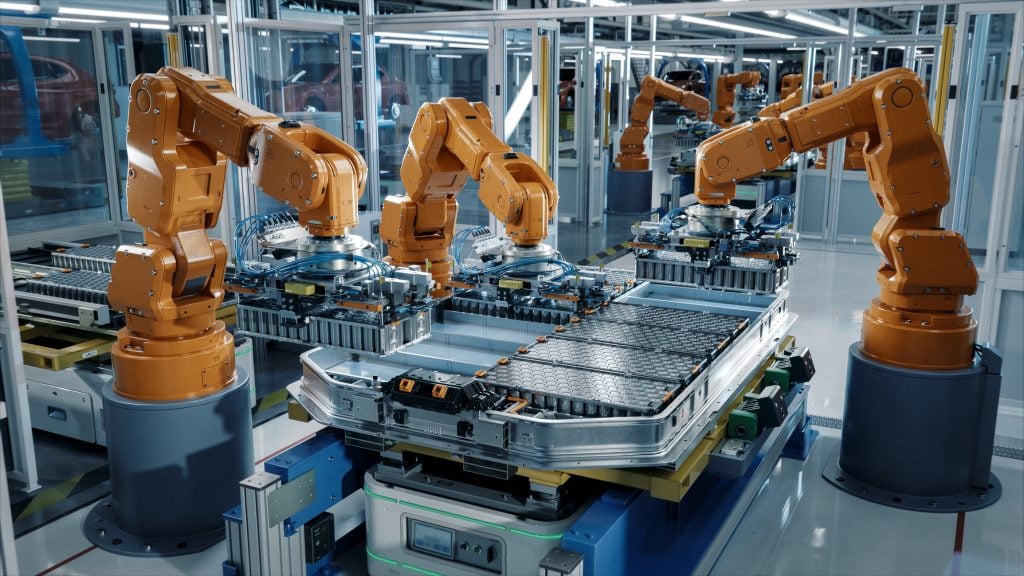AI and the end of manual property management

If you think that AI will impact industries that are less people-centric first, think again. This doesn't reflect what’s taking place in the property management business now, as it's rapidly evolving into a data-driven and predictive arena, and one that's fully powered by artificial intelligence (AI).
For leaders in this industry, an inflection point is ahead. Their businesses cannot rely as much on manual processes and reactive decision-making as they once did. Instead, they need to stay up to date with current technology trends. Properties that do leverage AI-driven management systems could see operational cost reductions of up to 30%, with higher tenant satisfaction scores.
But AI improvements won't eliminate the need for human expertise — far from it. The way forward will likely be through intelligent automation that's able to handle the most routine of tasks, while allowing employees to focus strategically on high-value activities instead.
AI and its impact on real estate management
Traditional property management has historically been reactionary and based on the “break it, fix it” model. Managers might schedule maintenance around a busy calendar and make decisions based on historical data rather than relying on predictive insights.
The arrival of AI will fundamentally change all this. For example:
-
Smart building systems can continuously monitor the performance of HVAC installations and balance efficiency levels weeks before a building's occupants notice.
-
Machine learning algorithms can pick apart maintenance requests to identify patterns and analyse utility consumption and tenant behaviour to predict, with remarkable accuracy, when an intervention may be necessary.
-
AI systems can analyse vibration patterns in an elevator motor or a temperature fluctuation in an HVAC installation, predicting with very high levels of accuracy when a component is likely to fail — often, months in advance.
These predictive capabilities will transform capital expenditure planning and make it more about strategic resource allocation than reactive crisis management.
Decisions driven by data are far better than those that rely on intuition. AI systems can process vast amounts of information very quickly. The actionable insights generated allow property managers to make shrewd pricing decisions, capital investment choices, and adjustments to their staff rotas based on comprehensive data analysis.
Chatbots and other automated communication systems are also revolutionising tenant services. AI can use natural language processing to handle routine inquiries and maintenance requests around the clock, instantaneously shifting to the tenant's native language if needed. These tools learn from each interaction to improve response quality. And while these systems are not intended to replace human interaction entirely, they allow for more focused human intervention, which is less costly.
Efficiency gains from automation
Organisations that implement AI tools in property management should see immediate operational efficiency gains in the administrative sphere. AI systems can also help with energy optimisation to continuously adjust (and learn from) building operations based on how many people are in the building, utility rate structures, weather forecasts, seasonal patterns, and tenant preferences.
Properties that use AI-driven energy management could save up to 20% of their utility costs while improving tenant comfort levels:
How to adopt AI tools for your property
Successfully implementing AI within your property management operation will require strategic planning and careful tool selection, as well as initial costs/investment. You also need to schedule any changes so you can avoid tenant disruption while maximising your operational benefits. Remember that you shouldn’t consider AI adoption as a single act but rather as part of an evolutionary process. Here are some recommendations:
Address low-risk but high-impact applications first
Predictive maintenance systems are a good place to get the ball rolling as you can often see immediate, measurable benefits with minimal impact on tenants.
Pinpoint energy optimisation systems
Successful work around these foundational applications could create the data infrastructure and familiarity you need to move on to more sophisticated implementations.
Talk directly to tenants during implementation
Be transparent about AI adoption, clearly explain its benefits, and assure them that data privacy is top of mind. Frame AI adoption as a service enhancement rather than pure automation and emphasise both better response times and improved service quality. Crucially, keep them in the loop and explain the adoption timeline to help them adjust to the changes. Transparency is key here.
Consider rolling out a pilot programme
Before you go all in, test AI tools on certain properties or specific applications. This will help you to learn and refine your approach, while building confidence and minimising risk.
Focus on data quality and integration planning
AI systems are only as effective as the data they process. This makes data standardisation, integration, and cleaning essential preparation steps for you.
Get ready to embrace the future with HLB
The arrival of artificial intelligence in property management is more than just a technological advancement. It's a fundamental shift. Embracing this transformation will help you move towards more efficient, responsive, and profitable real estate operations.
If you're looking for support, HLB’s real estate expertise combines deep industry knowledge with leading edge insights. We can help your property management organisation navigate this change successfully. We also track global real estate trends and market opportunities to align our clients' business objectives with their AI adoption strategy.
The future of property management is automated, predictive, and intelligent. Begin your transformation today to lead tomorrow's market. Contact HLB, and we’ll explain how AI can give your property management operations a competitive advantage.
Related content






